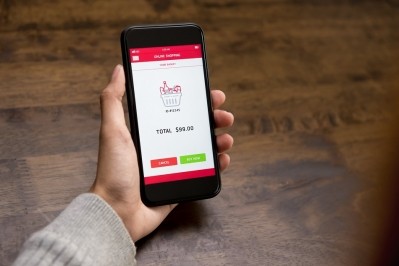E-commerce expert: “This is a great entry time for new and small brands to flourish on Amazon”

“Amazon advertising opportunities for small brands have increased during this time,” and while the initial outlay of capital needed to seize them may be uncomfortably high for new companies, the return on investment will be exponential – especially if they act fast to take advantage of supply chain challenges causing inventory discrepancies of large brands, said Betsy McGinn of McGinn Ecomm Consulting.
She explained to attendees May 21 during a webinar hosted by the Specialty Foods Association that large brands are not currently advertising on Amazon because they are selling, and in some cases experiencing out-of-stocks, without driving consumers to their products.
At the same time, she added, some middle-sized brands have also stopped advertising on Amazon, potentially because of economic insecurity around spending that level of money when they already have enough brand awareness to carry them forward, even if not accelerate their sales.
“What that has done is essentially open up advertising for smaller brands. It’s reduced the pay-per-clip costs in a lot of categories so that I really see this as a great entry time for new and small brands to flourish on Amazon,” McGinn said, adding she sees “that during this time consumers want to try new brands because they want something interesting and new and indulgent.”
While she encourages smaller and emerging brands to embrace advertising on Amazon, she cautioned them again running promotions on the platform currently.
“My philosophy around promoting on Amazon is heavily tied to advertising,” she explained. “Think about how we promote in brick-and-mortar stores. It is great to do displays with a great discount and an ad and that foot traffic you get will often get you new customers that are willing to try your product on discount.
“But, online, you’re not going to have people browsing by, strolling by your products, seeing it and purchasing it. So, when you’re discounting your product on a regular basis, you’re just incenting your existing consumers instead of using it to acquire new consumers, which happens through advertising.”
Checklist for online advertising
With that in mind, she advised small and emerging brands to check a few boxes before they invest heavily in advertising on Amazon.
The first is to ensure their product and brand pages have great content. “I wouldn’t spend a dime on advertising without great content, because that is your brand. That is your shelf. You’re sending people to your shelf and you want it to look terrific,” she said.
She also advised small and new brands not to take half measures advertising right now.
“I would really encourage you to start out with at least $1,000 a month and then ramp and scale that as your brand grows. There is going to be a tipping point, and it’s not going to be your first year, most likely, but maybe your second, maybe your third, where you can scale back your promotional and advertising spend to a level that is equivalent to a brick and mortar,” she said.
“So, if you start with $1,000 dollars a month and then you see you’re getting good traction with them, so maybe in six months you want to go up to $2,000 or $3,000,” which will allow brands to “get a really strong foothold, grow your business and then try to right-size your marketing spend with the size of your brand and your brand sales on Amazon,” she added.
Recognizing that this level of spend is likely “daunting,” McGinn added that brands should focus the investment on search terms that resonate with target consumer because even a few carefully chosen terms “are enough to do great, great adverting.”
Great advertising should be backed up by great customer service – especially right now when “people are sort of in a sensitive state during this time,” she said.
Hand in hand with this is avoiding overtly pressuring consumers to buy in a certain time frame with a certain discount, right now.
“With the shelter in place, it kind of can fray on people’s nerves,” and “may not be appropriate for now,” she said.
Life beyond Amazon
Finally, while McGinn advocated for smaller brands to embrace Amazon marketing she also noted it isn’t the only online platform and that different options will attract different types of consumers.
“I like to say there is life beyond Amazon,” she said.
Specifically, she noted, some people prefer to shop direct-to-consumer or through other online platforms like freshdirect, Instacart, goldbelly as well as online versions of big box stores, such as Target.com.
No matter which option brands choose, though, they must treat e-commerce as vital to their business and not as an incremental nice-to-have, McGinn said, adding that without marketing brands won’t have an e-commerce business.
















